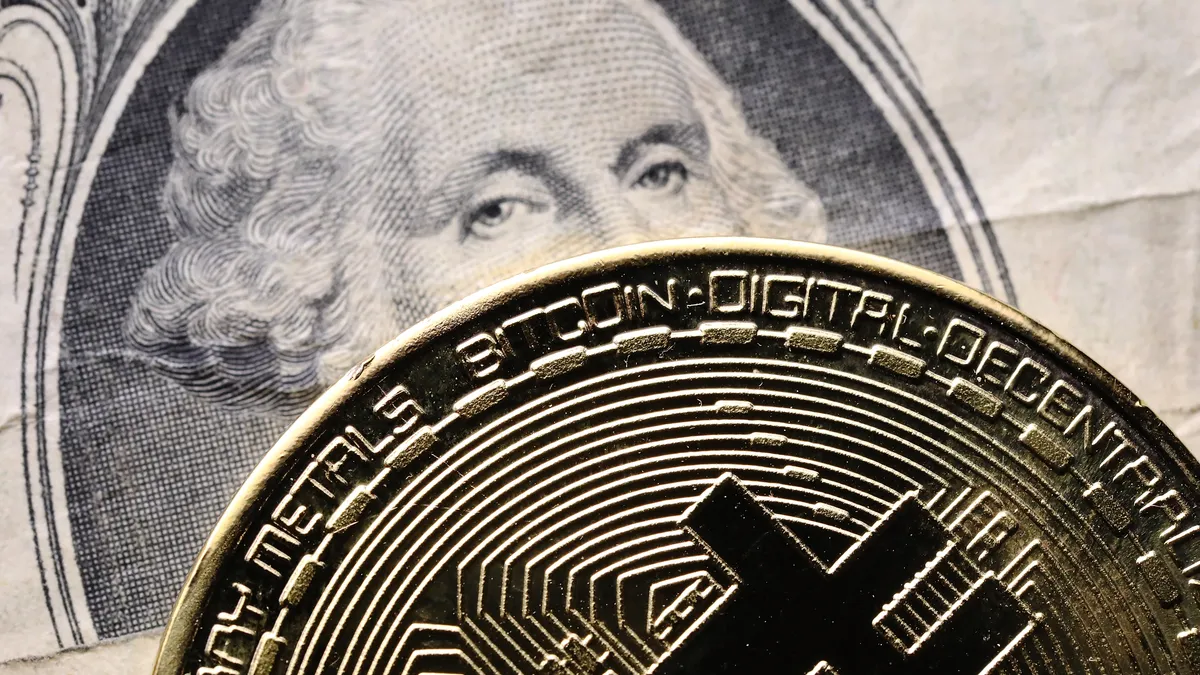Dive Brief:
- Fraud will probably grow in cryptocurrency markets, an attorney in the Securities and Exchange Commission’s (SEC) Enforcement Division said, commenting just days after the agency intensified a crackdown against swindling in decentralized finance (DeFi) platforms and other crypto markets.
- “There’s going to be a lot more fraud,” according to Steven Buchholz, assistant regional director for enforcement in the SEC’s San Francisco office. “It’s very easy for fraudsters to use confusing terminology, mislead about what the actual investment is” and quickly move profits abroad.
- “There will likely be litigated cases and I think in our view, that’s good,” Buchholz said Thursday at Securities Enforcement Forum West. Litigation “can provide additional clarity.”
Dive Insight:
Cryptocurrency advocates say that CFOs can use blockchain technology to gain access to fresh pools of capital, serve new groups of customers who transact in cryptocurrencies and streamline treasury functions such as money transfers.
Some CFOs have adopted crypto-enabled payments or, in the high-profile examples of Tesla and MicroStrategy, brought cryptocurrencies onto their balance sheets. They helped push up the value of non-state digital assets to a total market capitalization of $3 trillion in November from $14 billion in 2016, the White House said, citing unidentified surveys.
Yet cryptocurrencies and related markets have proven especially volatile this year. During just the past month, shares in Coinbase, the biggest U.S. exchange for cryptocurrencies, have plummeted more than 50%, while bitcoin and ethereum have plunged more than 25% and 30%, respectively.
The SEC — and the Biden administration more broadly — have sought to safeguard investors, consumers and businesses against abuses during the boom in cryptocurrencies and other digital assets. President Joe Biden signed an executive order in March aimed at “ensuring responsible development of digital assets.
SEC Chair Gary Gensler has repeatedly compared the crypto market to “the Wild West.” The agency has issued guidance saying that companies should disclose the risks to investors from cryptocurrencies held on behalf of customers and account for the assets as liabilities. The guidance went into effect last month.
The SEC noted an increase in the number of companies that enable customers to transact in crypto-assets, while maintaining the cryptographic key information needed to hold and safeguard the assets.
Such activity poses “unique risks and uncertainties” in technology, law and regulation that “can have a significant impact on the entity’s operations and financial condition” and should be included as a liability on a company’s balance sheet, the SEC said.
Gensler this month announced plans to expand the SEC’s Cyber Unit to 50 enforcers from 30, adding investigative staff attorneys, trial counsels and fraud analysts and renaming it as the Crypto Assets and Cyber Unit.
The stepped-up enforcement team will focus on investigating violations in securities law related to crypto asset offerings, exchanges and lending, as well as staking products, nonfungible tokens, stablecoins and DeFi platforms, the SEC said.
Since its creation in 2017, the group has brought more than 80 enforcement actions against fraudulent crypto asset offerings and platforms, imposing penalties exceeding $2 billion, the agency said.
“There’s a lot of fraud going on and to take advantage of — it’s so easy because of the terminology and the fear of missing out in this space,” Buchholz said. “That is why we take that very seriously.”
“High volatility, high risk to investors — it’s going to continue,” he said, adding that he was not speaking on behalf of the SEC.












